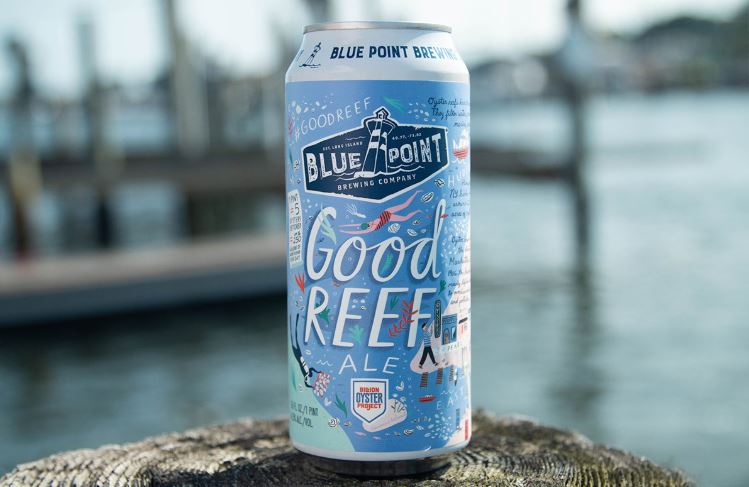Most drivers and pedestrians in the Big Apple don’t realize that the streets and sidewalks they’re using rest on a substrate of oyster shells. This isn’t surprising, since oysters were once so plentiful in New York City that they were considered working class food. Workers left vast piles of shells around the city, which were then reused to build roads.
It’s estimated that between the 1600s and the early 20th century, European immigrants who created New York City dredged some 350 square miles (220,000 acres) of oyster reefs into oblivion.
But all that shellfish slurping took a toll, not only on the oyster population, but on the health of New York Harbor, and on the safety of the city itself. Those reefs had for millennia protected these New York islands and peninsulas from storms. According to a 2016 Washington Post study, those reefs would have reduced Hurricane Sandy‘s wave energy by some 200%. Restoring those reefs could thus boost New York City’s resilience, helping to prevent a repeat of that $40 billion catastrophe.
Launched in 2014, Billion Oyster Project is an ecosystem restoration and education movement aimed at restoring one billion oysters to New York Harbor by the year 2035. With the ability to filter water, provide habitat for many marine species, and help shield NYC shorelines from storm damage, oysters have the power to protect life in and out of the water.
To date, Billion Oyster Project has planted 25 million oysters so far, engaging 6,000+ students, 9,000+ volunteers, and 60+ NYC restaurant partners. The project’s hands-on science and restoration curriculum is taught at 70 schools across the city.
Local stakeholders are increasingly seeing the wisdom of this work. For instance, in August of 2018, Long Island brewer Blue Point Brewing Company donated $20,000 to the nonprofit Billion Oyster Project to further enable the organization to install and maintain Community Oyster Reefs in New York Harbor, including in Jamaica Bay and the Upper Bay which feeds into the Hudson and East Rivers.
To further help spread the word for this important cause, Blue Point launched a brand new beer, Good Reef Ale, on September 3. For every pint of Good Reef Ale sold, five oysters will be restored to Billion Oyster Project’s Community Oyster Reefs in New York City. Those five oysters can filter up to 250 gallons of water per day.
Oyster reefs provide essential environmental services, such as improving water quality, creating habitat for thousands of other species, and helping protect shorelines from storm damage. The Billion Oyster Project aims not only to bring oyster reefs back to New York City waters, but to do so with New York City communities—providing opportunities for people to enjoy their local waterways and create the future of their sustainable city. The Community Reefs program focuses on giving community organizations the opportunity to maintain their own near-shoreline oysters reefs, similar in spirit with a community garden.
“We’re honored to enter into a long-term partnership with Billion Oyster Project to help serve their goal of restoring one billion oysters to the New York Harbor by 2035,” said Jenna Lally, Blue Point Brewing Company President. “Oysters have been a part of Blue Point’s history and mission since the very beginning—they’re native to our coastal hometown of Patchogue, represent our namesake and serve as a key ingredient in our beers. Blue Point is thrilled to introduce Good Reef Ale into our portfolio of beers that support water and oyster conservation along the east coast.”
Good Reef is a dry-hopped Belgian Ale with a light body and clean citrus character. The beer will be sold at select Whole Foods markets in the tri-state area, on draft at locations throughout New York City and Long Island.
Blue Point Brewing Company was founded in 1998 on Long Island’s south shore. They have crafted an innovative lineup of brews inspired by local coastal heritage. Toasted Lager leads the brand’s portfolio of award-winning beers that are brewed with local ingredients including oyster shells, beach plums, and seaweed. In 2018, Blue Point will expand their brewing capacity and innovation with a new facility up the street from their original repurposed boatyard home.
Image courtesy of Blue Point Brewing Company.

